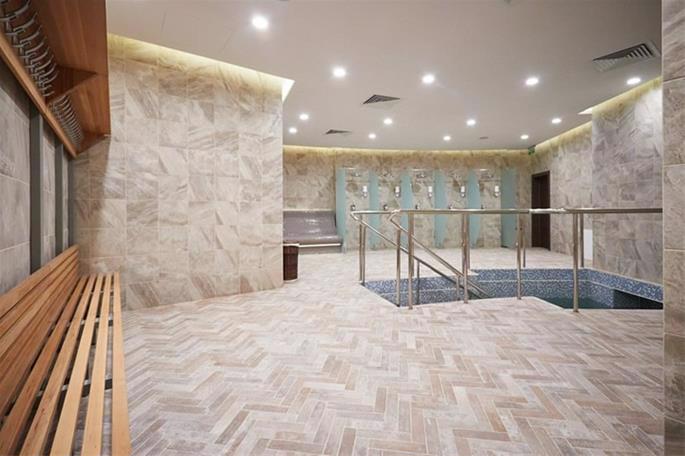In this article:
- What Is a Mikvah?
- Who Uses a Mikvah?
- How Do I Contact a Mikvah?
- Does It Cost Money?
- Is Everyone Going to Stare at Me as I Pull into the Parking Lot?
- What Do I Need to Do in Advance?
- What Do I Bring With?
- What Should I Expect Once I Arrive?
- How Does the Actual Dip Happen?
- Is There a Blessing to Say?
- Is There a Special Way to Exit the Mikvah?
- Any Tips for After I Leave the Mikvah?
What Is a Mikvah?
A mikvah is a pool of naturally occurring water used for ritual cleansing in Judaism. Historical mikvahs were often underground streams, wells or specially crafted rain cisterns. In modern times, the mikvah often consists of several pools, with the rainwater touching pools of tap water, conferring their natural status on them as well. This allows for a clean, pleasant (and warm!) mikvah.
In recent decades, mikvahs have become increasingly beautiful, offering a serene and enjoyable experience. In addition to the actual mikvah pool, there are often showers, baths and everything else a person may need to get ready for the mikvah.
Who Uses a Mikvah?
In Temple times, mikvah use was necessary before anyone who had contracted ritual impurity could enter the Holy Temple in Jerusalem or eat sacred foods. Though we no longer have a Temple or sacred foods and are unable to completely rid ourselves of certain forms of impurity (read: Why Is Impurity Not Observed?), the mikvah still has four basic uses today:
A. A convert who joins the Jewish nation immerses in the mikvah as part of the process of becoming Jewish (read: How to Convert to Judaism).
B. Utensils purchased from non-Jews to be used with food must be immersed in a mikvah, often a specially scaled mikvah, easily accessible to the public (read: Immersion of Vessels).
C. There is an ancient custom to immerse in a mikvah before Yom Kippur. Some men have the custom to immerse before holidays, prior to Shabbat or even every morning. They do so in a special men’s mikvah, which is more like a communal bathhouse and significantly less spa-like than the facilities reserved for conversions and women (read: Why Men Immerse in the Mikvah).
D. The most important use of mikvah is for niddah. A Jewish couple ceases to have physical contact whenever the wife has her period (and other cases when blood is expelled). After the bleeding stops, she counts seven days, immerses in a mikvah, and then she and her husband can be together again. The details of how to keep this mitzvah can be daunting to the uninitiated but are central to Jewish life. Observed properly, niddah brings blessing, joy and contentment into your marriage. It is best to be in touch with someone who can guide you personally, such as your local Chabad rebbetzin (read: What Is Niddah?).
In this article, we will focus on this third use of mikvah.
How Do I Contact a Mikvah?
The first thing you need to do is find amikvah! If this is your first time going to the mikvah in a new city, you can find out where your closest mikvah is by clicking here. Mikvahs in larger cities usually have hours when they are open, while mikvahs in smaller towns are often open by appointment only. The mikvah will generally have a website or a phone number that you can call to hear a recording with the necessary information. If your mikvah is open by appointment only, you will be given the private phone number of the mikvah attendant who will be meeting you at the mikvah. Attendants usually appreciate being called a few days in advance to set up an appointment, but if for whatever reason you didn’t call and it’s already the day of, don’t be shy. The mikvah attendant is happy to help you.
Does It Cost Money?
There is often a fee or suggested donation. In some places, you can pay online, and other (smaller) mikvahs prefer that you bring along a check or cash. If paying the fee presents a hardship for you, definitely discuss this with the mikvah supervisor—while mikvahs need money to run, nobody wants a woman to avoid doing this mitzvah due to financial difficulties.
Is Everyone Going to Stare at Me as I Pull into the Parking Lot?
In general, going to the mikvah is a private affair. The entrance is often not obvious, and you may need prior instruction in order to find it. Many mikvahs have a discreetly located but well-lit parking lot with security cameras that the mikvah attendant keeps an eye on from inside. Everyone who meets in the context of a mikvah visit—attendants as well as fellow mikvah visitors—respect each other's privacy and do not casually chat about meeting at the mikvah to anyone else or to each other when they meet again in another context.
What Do I Need to Do in Advance?
When you immerse in the mikvah, you need to have water cover every bit of your body. To achieve this, great care is taken to get very clean before mikvah attendance, removing everything that could possibly get between the water and your body. This cleansing process is known as chafifah, “scrubbing” and should be started in advance.
What Do I Bring With?
You will probably choose to pack a bag of some things to bring with you—a comb, a toothbrush, or anything else that you may want to use to clean up before the mikvah.
What Should I Expect Once I Arrive?
When you arrive at the mikvah, you will be buzzed in and ushered into your private preparation room.
The rooms usually look like spacious and beautiful private bathrooms. Some of these rooms have bathtubs and some have showers. (The mikvah attendant will ask you which you need.)
In the preparation room, you can take your time preparing. You will find supplied towels, washcloths, shampoo and soap. Some mikvahs include other things that you might need such as nail clippers, combs, cotton swabs, nail polish remover and more. If, when you are preparing, you find that you are missing something that you need, it is likely that the attendant has what you need in storage and will bring it to you if you ask her to.
Sometimes you will find a bathrobe with a hood for you to wear into the mikvah room. If not, you can wrap yourself in towels. There will usually be disposable slippers to wear on the way to the mikvah room.
When your preparations are complete and you have checked your body well for any obstructions, it is up to you to summon themikvah attendant, who will meet you at your room and escort you to the mikvah room. Some larger mikvahs have bells or intercoms for this purpose. In smaller mikvahs, the routine might be for you to just knock on your door or call out to her that you are ready.
Since you want to be perfectly clean before submerging in the mikvah, the mikvah attendant will offer to check your hands and feet, and perhaps your shoulders, to make sure there are no stray hairs, dry skin, or anything else that might block the waters. You can decide whether you want her to do this. The checking is done modestly so as not to make you uncomfortable.
How Does the Actual Dip Happen?
When you and the mikvah attendant determine that you are ready to submerge in the mikvah, she will stand behind you and help you out of your robe or towel, holding it in front of her so that you have your privacy as you go down the steps into the mikvah. Only when you tell her that you are in the mikvah water and ready to submerge will she look at you (you can be facing any direction you want). You can then submerge and she will watch you to ascertain that your entire body is under the water, including hair that may float up.
When you come up after having properly submerged, she will call out "kosher." (If your submersion was not complete for some reason, she will tell you and you can do it again.)
Most mikvah attendants are very professional and kind, like nurses, but if for some reason you feel uncomfortable, you can request another mikvah attendant the next time you come. Depending on the size of your city, there may also be more than one mikvah to choose from.
Is There a Blessing to Say?
Yes! The attendant will then pass you a head covering for you to wear while you say the blessing, which may be posted on the wall. (Some mikvahs have covers in the mikvah room, while in others you may be expected to take a small towel with you from your preparation room for this purpose.)

Immerse in the mikvah and then cross your arms across your chest and recite the blessing, "Baruch atah Ado-nai Elo-heinu melech haolam asher kidishanu b’mitvotav v’tzivanu al hatvilah." The mikvah attendant will respond “amen” to your blessing. You then submerge once again, with the mikvah attendant calling out "kosher" after each proper submersion. (Some women have a custom to submerge more times, so the mikvah lady might ask you how many times you want to submerge.)
While submerging in the mikvah and after the second submersion while you are still in the mikvah water, it is a special time for you to pray to G‑d in your heart or in your own words, asking for blessings for you and your husband as a couple, for your family, and for anything that is close to your heart. Take the time to finish your prayers; it is fine for the mikvah attendant to wait.
Although submerging in the mikvah is a deeply spiritual experience, you may not feel anything spiritual, and that’s OK.
Is There a Special Way to Exit the Mikvah?
When you are ready to come out of the water, the mikvah attendant will again stand at the top of the steps and hold up your robe or towel for you, so that your privacy is maintained as you make your way up the steps and out of the water and she does not see your body.
When you reach the top of the steps, the mikvah attendant will replace your robe or towel over your shoulders. Then she’ll escort you back to your private preparation room so you can get dressed and ready to leave.
Any Tips for After I Leave the Mikvah?
- It is proper not to shower after submerging in the mikvah.
- Some mikvahs have hair dryers for post-mikvah use, but not all.
- You might see a bin where you can toss your used towels.
- Wash your hands by pouring water onto them before leaving the mikvah building. There are often sinks with washing cups for this purpose in the public area of the mikvah.
- When you are ready to leave, thank the mikvah attendant if possible, pay the expected fee (if you haven’t paid in advance), and head home.
Make sure to tell your husband that you went to the mikvah, either on the phone before you meet him or when you first meet him after your mikvah visit. The first night after mikvah attendance is a special time for a husband and wife. After separation, they are once again united as a couple. Make sure to clear your evening so that you can make time for each other and give your relationship the attention it so deserves.
Did you find this informative? This is part of a series of “What to Expect” articles that offer visitors a basic understanding of Jewish rituals and traditions.







Thank you.